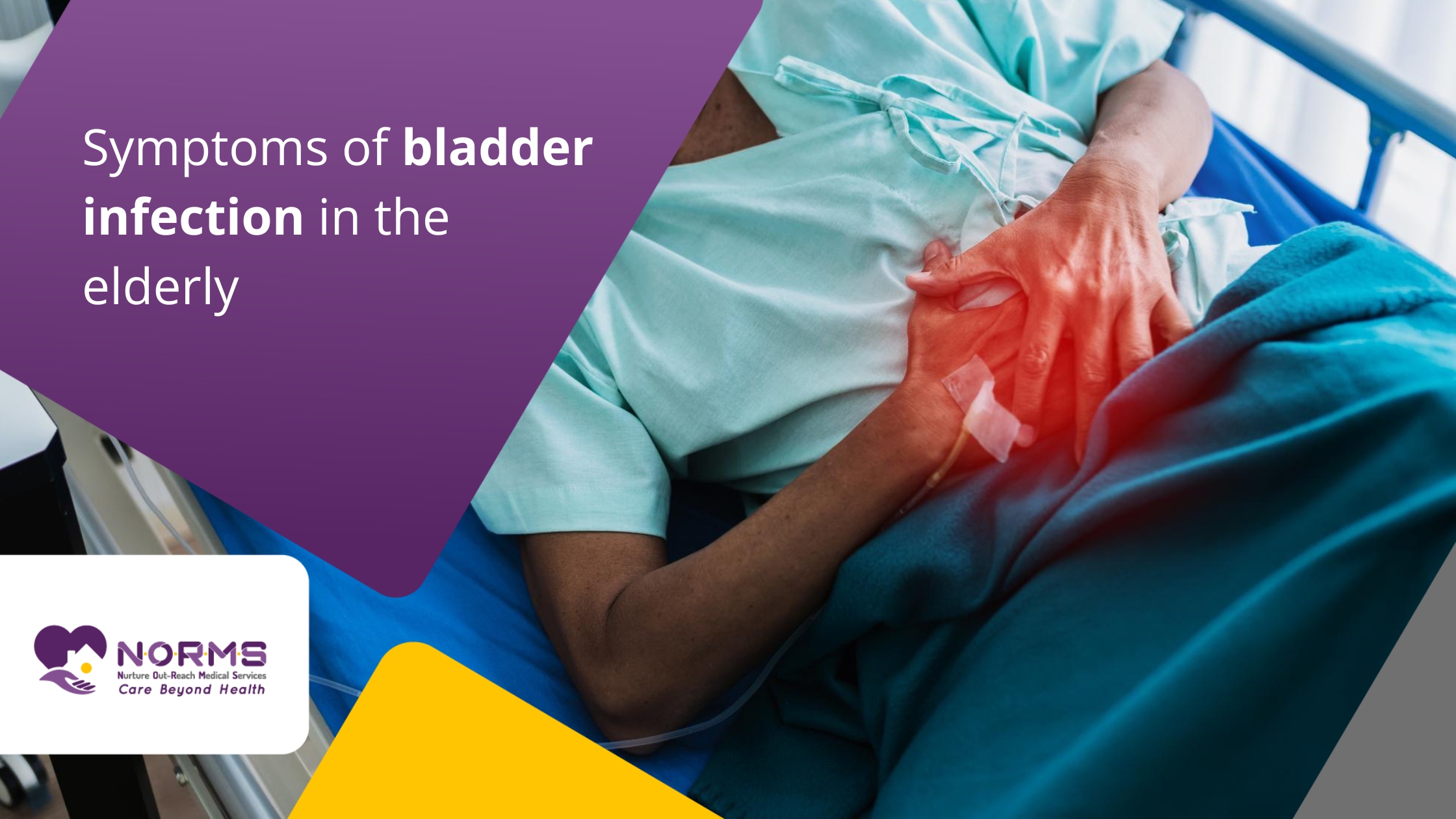
Urinary tract infections (UTIs) also known as bladder infections are a common health problem that affects millions of people every year. Urinary tract infection (UTI) is a bacterial or fungal infection and can occur in any part of the urinary system including the bladder, kidneys, ureters, and urethra. Most UTIs are caused by E. coli bacteria, which normally live in the colon. UTIs are very common in elderly people and may cause severe symptoms such as fatigue, confusion, delirium, or behaviour changes.
Elderly people are more susceptible to developing bladder infections or Urinary Tract Infections (UTIs) for several reasons, typically when bacteria enter the urinary tract through the urethra and begin to multiply and infect the bladder. The urinary system is designed to keep out bacteria, but sometimes, the immune system fails causing bacteria to take hold and grow into a full-blown infection in the urinary tract.
There are several causes of bladder infections in the elderly which include:
Symptoms of bladder infection or a UTI are very similar for people of all age groups, which may include:
In addition to these symptoms, elderly people with bladder infection or UTI may show some mental symptoms that include signs of behavioural changes such as confusion, anxiety, lethargy, sleep issues, delirium, agitation, hallucinations, withdrawal or violent behaviour.
As the name suggests, sepsis can occur as a complication of a urinary tract infection (UTI), caused by bacteria entering the urinary tract and causing an infection. Sepsis from a urinary tract infection (UTI) is the body’s extreme response to infection, and used to be called earlier as blood poisoning.
Symptoms of sepsis from a urinary tract infection (UTI) in the elderly can include:
Sepsis is a life-threatening medical emergency that requires immediate diagnosis and treatment, to prevent serious complications, such as organ failure or septic shock. Sepsis can damage the organs such as the brain, heart, lungs, or kidneys, and can even be fatal.
Elderly people are more susceptible to developing bladder infections or Urinary Tract Infections (UTIs) for several reasons and some infections become very complicated.
Treatment options involve a broad spectrum of antibiotics, IV fluids, supportive care and preventive measures to effectively manage symptoms and prevent complications such as organ failure or septic shock.
Here are some tips to effectively manage symptoms of urinary tract infection in elderly:
Urinary tract infections (UTIs) also known as bladder infections are a common health problem that affects millions of people every year. Bladder infections are very common in elderly people and may cause severe symptoms such as fatigue, confusion, delirium, or behaviour changes. Elderly people are more susceptible to developing bladder infections due to weakened immune system, incontinence, dehydration, estrogen deficiency in elderly women, poor hygiene habits, some medical conditions such as Alzheimer’s disease, Parkinson’s disease, dementia, and diabetes. Treatment options such as antibiotics, IV fluids, supportive care and preventive measures will help to effectively manage symptoms and prevent complications such as organ failure or septic shock. However, some tips and home remedies like drinking enough fluids, especially water, taking probiotics (under the guidance of a healthcare professional), taking vitamin c supplements, and maintaining proper hygiene will greatly reduce the risk of bladder infections or urinary tract infections in the elderly people.